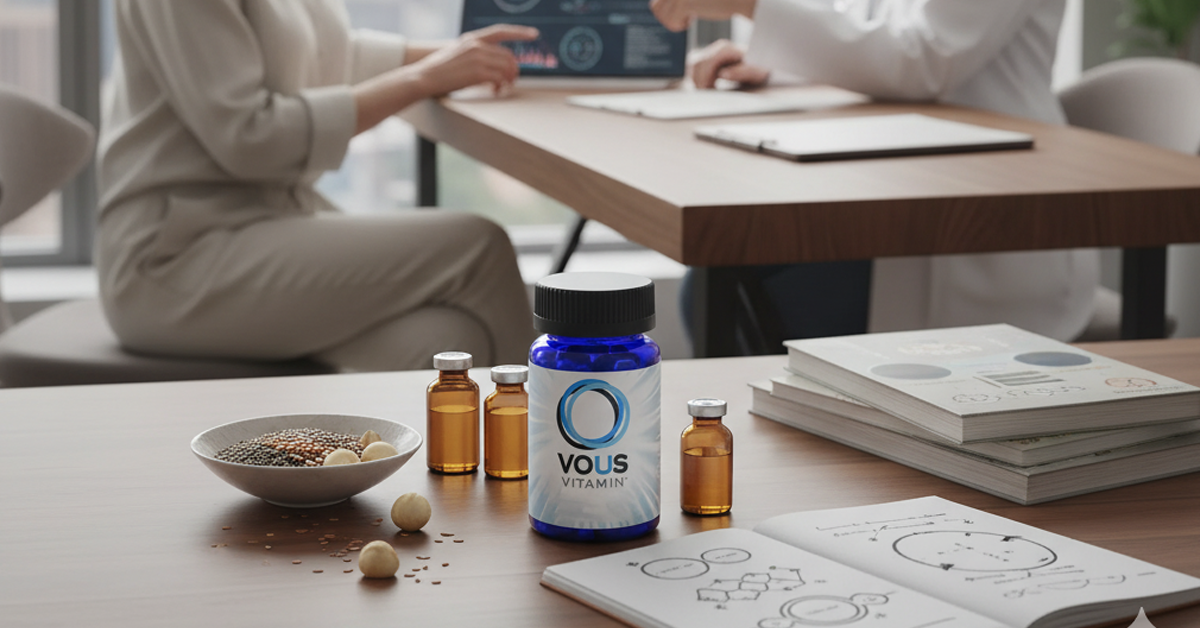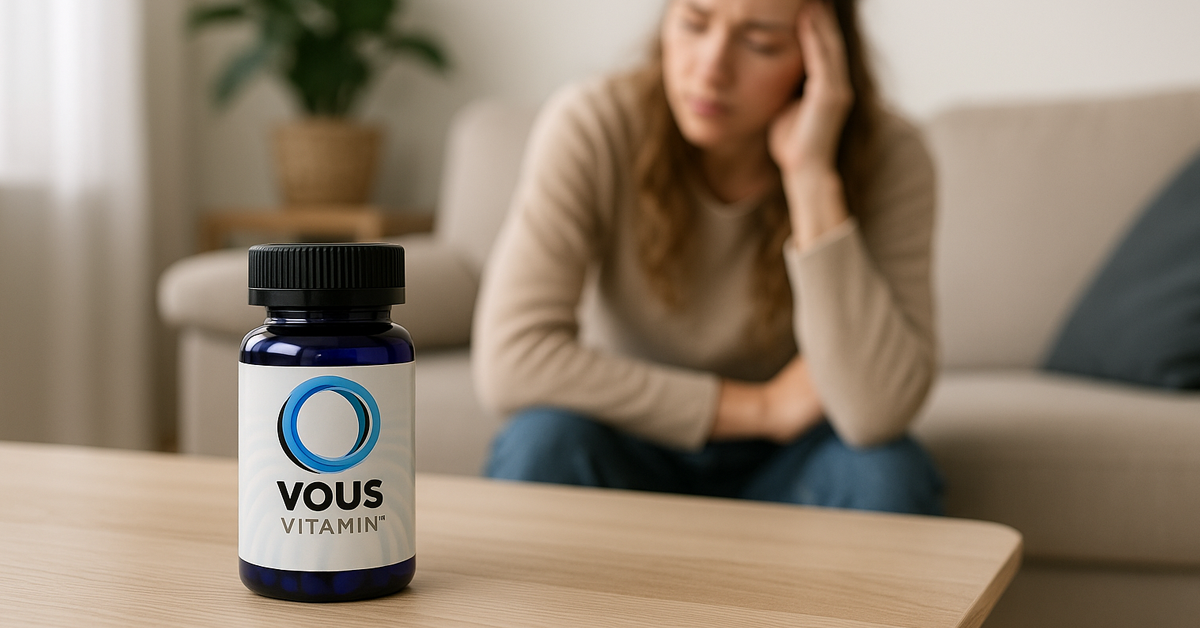

In addition to the diet and exercise suggestions, adding some vitamins and minerals also may be helpful in constipation relief. The problem is that many consumers have trouble identifying the right blend of vitamins for this type of issue. A personalized vitamin assessment can be a valuable tool to discover which vitamins may be helpful for constipation relief.
Magnesium is a natural form of a laxative. It helps stimulate your GI tract to operate smoothly. Magnesium channels are essential in making cells cause muscle contractions, and the GI tract is a muscle too! Many of us can benefit from a little more magnesium in our diet. However, too much is never a good thing. Those who have compromised kidney function should stay clear of magnesium-containing products as it can be dangerous for them.
Another vitamin solution to constipation is fish oil or omega-3s. Vous Vitamin® is considering them in our next line of product development, because omega-3s seem to play a role in helping many issues. In regard to GI health, these can often act as natural laxatives, likely because they act as a natural lubricant or stool softener. Most people taking omega-3s are taking them for other reasons (triglyceride lowering or joint health) but notice this beneficial side effect of less constipation. However, for some this can backfire, and omega-3s can cause worse GI symptoms such as cramping and loose stools. Many other “natural herbal products” have been promoted for constipation.
For example, milk thistle, senna, and aloe have all been touted for their laxative properties. It is our recommendation to avoid these products. Some have been found to contain other ingredients. Even if the products are pure, they are less than ideal and they can act as stimulant laxatives, which are not early as safe or free of side effects as the above-mentioned nonstimulant laxatives.
Probiotics are a concentrated form of the “good bacteria” which can normally be found in the GI tract. Different products contain diverse strains of various bacteria such as lactobacillus that may help promote GI health. These are the good bacteria commonly advertised in yogurt but found in much greater abundance in pill form. There is some research to suggest that taking these good bacteria can significantly improve GI symptoms in a variety of people: specifically those with IBD, diarrhea due to antibiotics or a viral illness, and/or IBS. This is a very individual response, but many of our patients swear by probiotics and their role in GI health. Some people have different responses from different brands of products. Stay tuned for more research on bacteria in the GI tract. It is very possible that in the near future we will be manipulating these bacteria to help address everything from obesity to mental illness!
In the case study of our female patient, after adjusting her diet and adding magnesium, she made great progress. She’s like a new woman. Sticking to this regimen, she feels better and more energized—and in turn this has motivated her to exercise more. She even lost a few pounds! Increasing the fiber in her diet eliminated her issues with hard and infrequent bowel movements, and at the same time she stopped having those occasional episodes of diarrhea. The new regimen seemed to get her GI tract “trained” so that the frequency of her bowel movements was more regulated. This is one of the great paradoxes of treating IBS—people are afraid to take something like fiber, which is known to alleviate constipation, if they are having a problem with too frequent stools. However, it is generally worth a try, because it is the bulking effect of the fiber that somehow retrains the colon to move stool through in a regular fashion. It may seem counterintuitive, but it often works!
Constipation and irritable bowel symptoms can be very unpleasant and are so common. The good news is that unlike many other more serious health issues, they are often treatable with the employment of a range of good habits and some supplements. As illustrated by our patient, a quick overhaul of one’s diet and other lifestyle factors and the addition of a few off-the-shelf products can make a huge difference.
So next time you feel that things are not normal with your GI tract, consider these simple and natural solutions: fiber, water, exercise, magnesium, fish oil, and probiotics.










When women start to experience menopausal issues, they immediately start to investigate what products can provide relief. There are a number of nutritional supplement products


Many women experiencing menopause struggle to find evidence-based approaches to get relief on their symptoms. Wandering the vitamin aisles is an overwhelming experience and not


A vitamin shopper left to their own devices in the vitamin aisle may easily fail to recognize a viable product for their specific conditions. Menopause,


In addition to the diet and exercise suggestions, adding some vitamins and minerals also may be helpful in constipation relief. The problem is that many
| Cookie | Duration | Description |
|---|---|---|
| cookielawinfo-checkbox-analytics | 11 months | This cookie is set by GDPR Cookie Consent plugin. The cookie is used to store the user consent for the cookies in the category "Analytics". |
| cookielawinfo-checkbox-functional | 11 months | The cookie is set by GDPR cookie consent to record the user consent for the cookies in the category "Functional". |
| cookielawinfo-checkbox-necessary | 11 months | This cookie is set by GDPR Cookie Consent plugin. The cookies is used to store the user consent for the cookies in the category "Necessary". |
| cookielawinfo-checkbox-others | 11 months | This cookie is set by GDPR Cookie Consent plugin. The cookie is used to store the user consent for the cookies in the category "Other. |
| cookielawinfo-checkbox-performance | 11 months | This cookie is set by GDPR Cookie Consent plugin. The cookie is used to store the user consent for the cookies in the category "Performance". |
| viewed_cookie_policy | 11 months | The cookie is set by the GDPR Cookie Consent plugin and is used to store whether or not user has consented to the use of cookies. It does not store any personal data. |